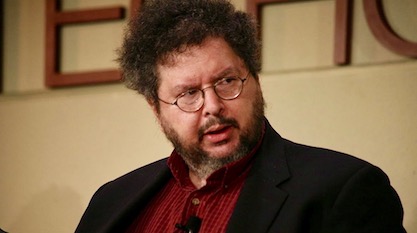 Neuroscience & Mind
Neuroscience & Mind
Great Minds: Medved and Gelernter on Human Exceptionalism, American Exceptionalism


At a little over 20 minutes long, the latest Great Minds with Michael Medved podcast feels too short. I could go on listening to Michael and the great polymathic Yale computer scientist David Gelernter for much longer.
A Parallel Exceptionalism
Their subjects are computers, the human mind, and American exceptionalism. The human mind is exceptional in the universe as the United States is exceptional on the face of the Earth.
The audio and video versions are up now at the Great Minds website, courtesy of Discovery Institute.
The idea is often casually stated that the mind is no more than a computer in the form of meat. It’s no great wonder. Therefore mimicking it through a computer in some other form should be within our abilities, if not now then very soon. Right? Not so fast, says Professor Gelernter. To say the mind is a computer, he explains, is a “cheapskate way of describing” it.
It is a form of computer in the sense you could say it’s a form of cash register, a form of sports betting calculator, and it’s a form of spell checker, and so forth. It can do a lot of things, but its capacities are far, far beyond the capacities of any computer that exists, and also beyond the capacities of the theoretical computer which the great mathematician Alan Turing defined in the 1930s.
Not Even a Theoretical Model
Computer scientists aren’t just a long way from devising an AI computer with the ability to think, wonder, dream, and wish. They don’t have any idea how it could be done, even in the sense of a theoretical model. Or whether it can ever be done.
In an interesting transition, Medved and Gelernter go on to talk about what makes the United States unique. Not for its power but for its creativity. Gelernter sums it up well: “Our ideology is freedom, or you might say freedom in a Biblical setting.” Yet, it seems to me, that heritage is being quickly eroded, perhaps irrecoverably. I’d like to ask Gelernter if he agrees.
Lots of great stuff in these 20 minutes, including the warning from Gelernter about what a “lousy idea” it is to put computers in the hands of kids “until they’re in their teens, at least.” Note the last two words, schools and parents. “At least”! As Denis Lamoureux would say, “Preach it, brother!”
Photo: David Gelernter, by Doc Searls (Flickr: 2010_08_05_techonomy_154) [CC BY 2.0], via Wikimedia Commons.
